1980s
Yell Yaa Hoo
Years before the Internet company Yahoo! came into existence, the Indian guru Bhagwan Shree Rajneesh was urging use of the word as a more hygienic form of greeting: "When you come across a friend, raise your hands to the sky and scream 'Yaa Hoo' instead of employing the universal handshake."
The Molina Dispatch - Apr 1, 1988
Apparently Rajneesh believed that "Yaa-Hoo" was quite a powerful word, since he also had his followers use it in a ritualized laughter therapy:
And then the second part is "Yaa-boo." The first part removes everything that hinders your laughter—all the inhibitions of past humanity, all the repressions. It cuts them away. It brings a new space within you, but still you have to go a few steps more to reach the temple of your being, because you have suppressed so much sadness, so much despair, so much anxiety, so many tears—they are all there, covering you can destroying your beauty, your grace, your joy.

Posted By: Alex - Sat Feb 10, 2018 -
Comments (6)
Category: Hygiene, 1980s
The Presidential Comedy Albums of Earle Doud
Everyone knows the famous JFK-Vaughn Meader album. But how many realize the producer Earle Doud went on with that theme, to much less acclaim?I can't seem to find any clips on YouTube of the later ones.
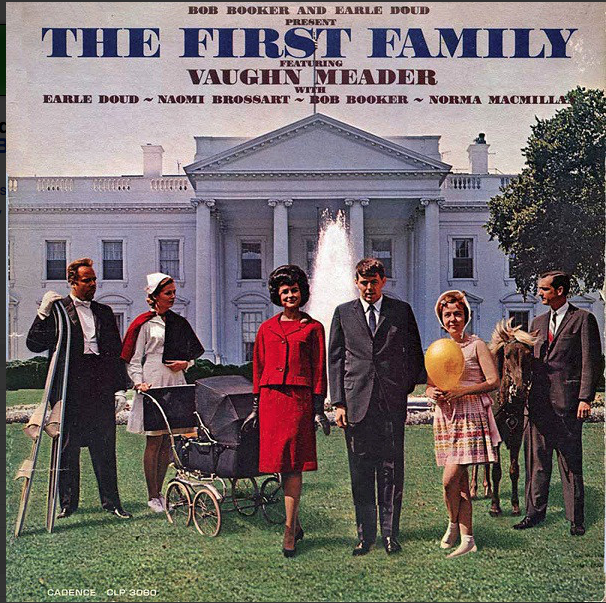
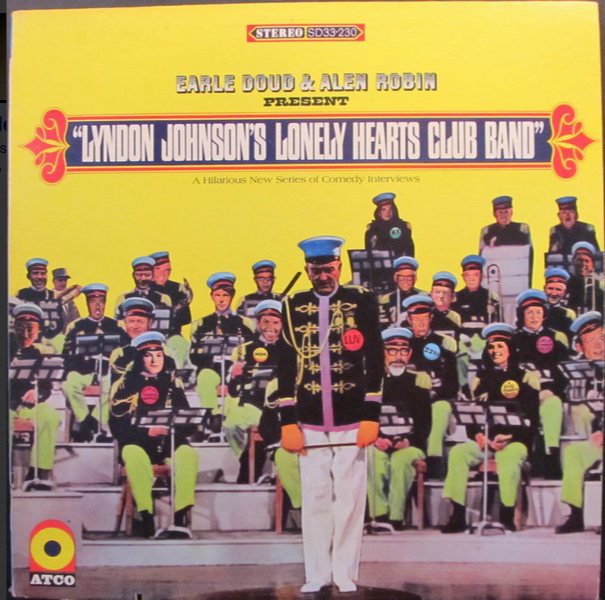
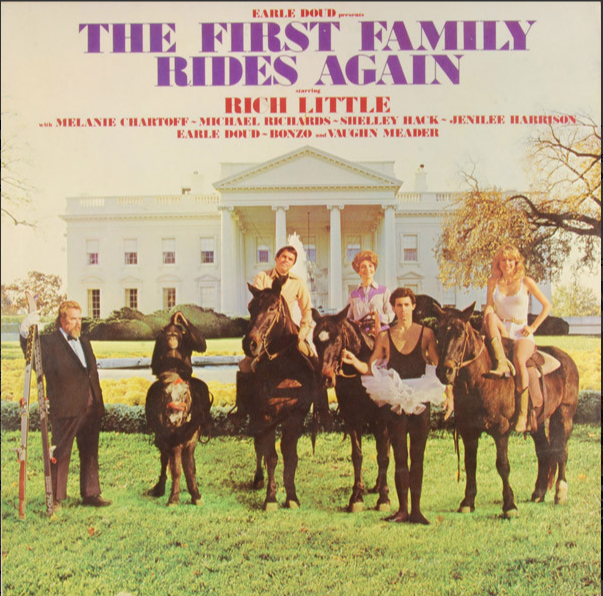
Posted By: Paul - Thu Feb 08, 2018 -
Comments (3)
Category: Government, Humor, 1960s, 1970s, 1980s
With real lemon juice!
In 1982, the Maryland Poison Center reported almost 80 cases of people who had suffered nausea and diarrhea after drinking Sunlight dishwashing liquid. They had received free bottles of the stuff in the mail as part of a promotional campaign. The source of the confusion was a picture of lemons on the label as well as the phrase "with real lemon juice." This led many to conclude that the bottle contained some kind of lemonade. Or a lemon-flavored drink mixer. A lot of people added it to iced tea.A spokesman for Lever Brothers, the manufacturer of the product, noted that the bottles also clearly said, "Sunlight dishwashing liquid."
Sunlight no longer uses the phrase "with real lemon juice." Apparently they learned their lesson. But they've still got a picture of a lemon on their bottles.
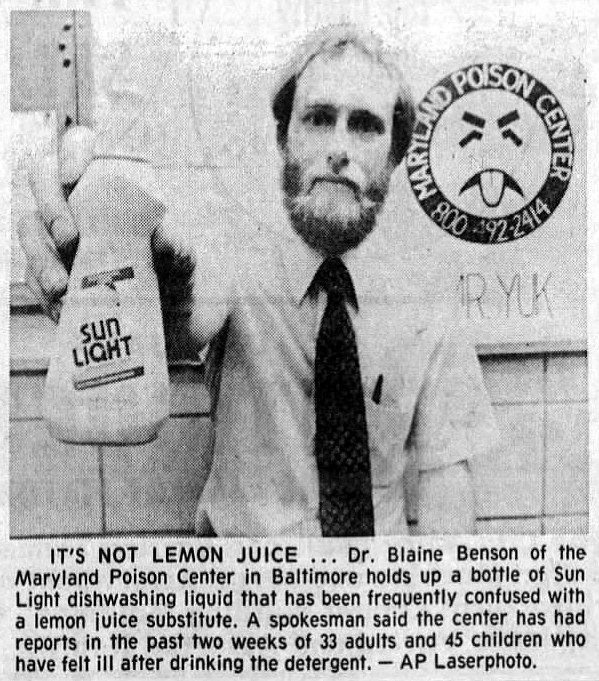
Muncie Evening Press - July 15, 1982
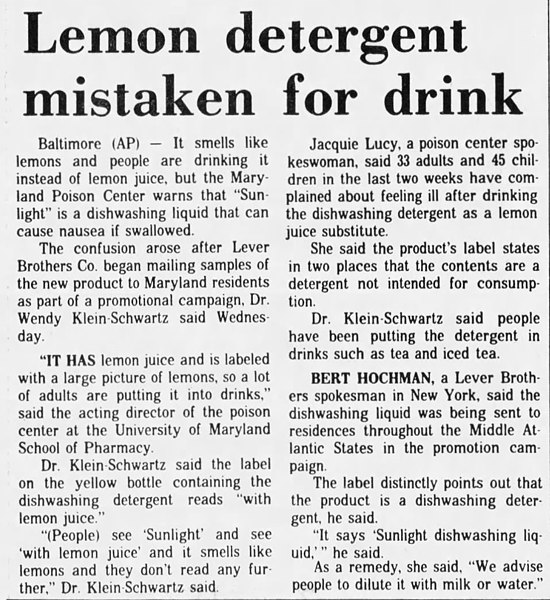
Indianapolis Star - July 15, 1982
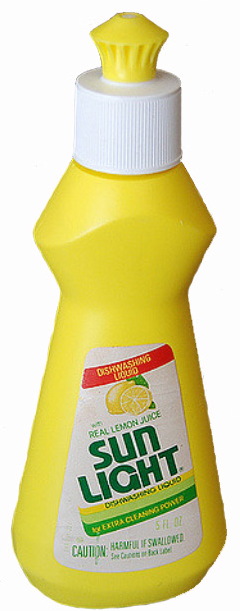
The bottle that caused the confusion
More in extended >>
Posted By: Alex - Sat Jan 20, 2018 -
Comments (6)
Category: Soda, Pop, Soft Drinks and other Non-Alcoholic Beverages, 1980s
Greenhouse Helmet
Patented in 1986 by Waldemar Anguita of Brooklyn, NY. And I'm not sure, but this may be Waldemar's Twitter account. After all, how many Waldemar Anguitas of approximately the right age can there be in Brooklyn?Another object is to provide a greenhouse helmet that has air filters so that ambient air containing carbon dioxide will be filtered therethrough and mixed with the carbon dioxide breathed out by the person to be used by the plants.
An additional object is to provide a greenhouse helmet that will contain hearing and speaking devices so that the person can hear within and speak out through the helmet.
A further object is to provide a greenhouse helmet that is economical in cost to manufacture.
A still further object is to provide a greenhouse helmet that is simple and easy to use.

Posted By: Alex - Wed Dec 27, 2017 -
Comments (3)
Category: Inventions, Patents, 1980s
Takes $1.95 Dispute to Supreme Court
During the gasoline shortage of 1979, New York state ordered a $7 minimum purchase of gas at stations, to stop people topping up. Frank Makara's tank would only hold $5.05 woth of gas, but he had to pay the full $7 minimum anyway. Outraged, he sued the BP station that charged him the $7, and took his suit all the way to the supreme court... which refused to hear the case. He ended up spending over $100 to try to recover $1.95.According to the online inflation calculator I ran the numbers through, $1.95 in 1979 has the same purchasing power as $7.18 in 2017. So, even in today's money, not worth going to court over. Unless you're a stubborn old goat for whom the principle is worth more than the money spent on court fees.
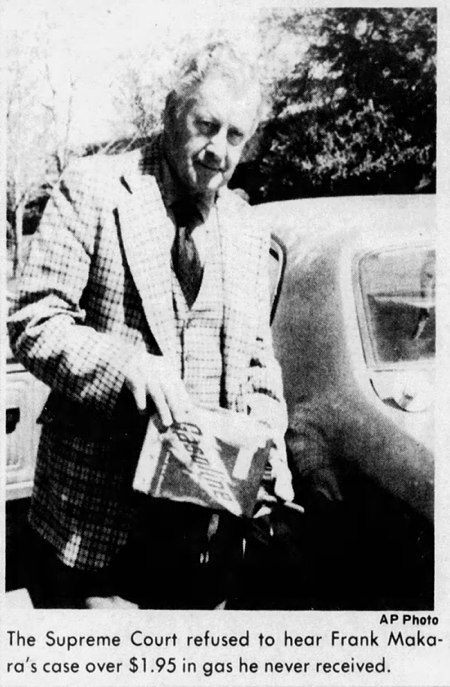

White Plains Journal News - Apr 21, 1981
Posted By: Alex - Thu Nov 16, 2017 -
Comments (7)
Category: Lawsuits, 1980s
The Atmos Clock
If only you had invested in an Atmos Clock in 1982, the date of the B&W ad, you could have saved a bundle!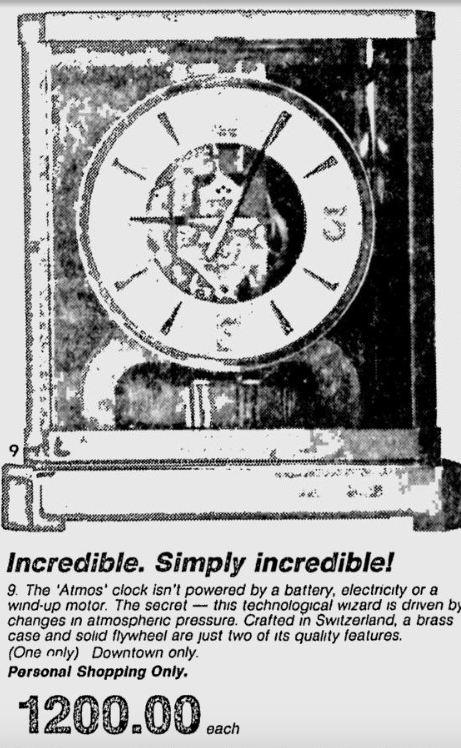
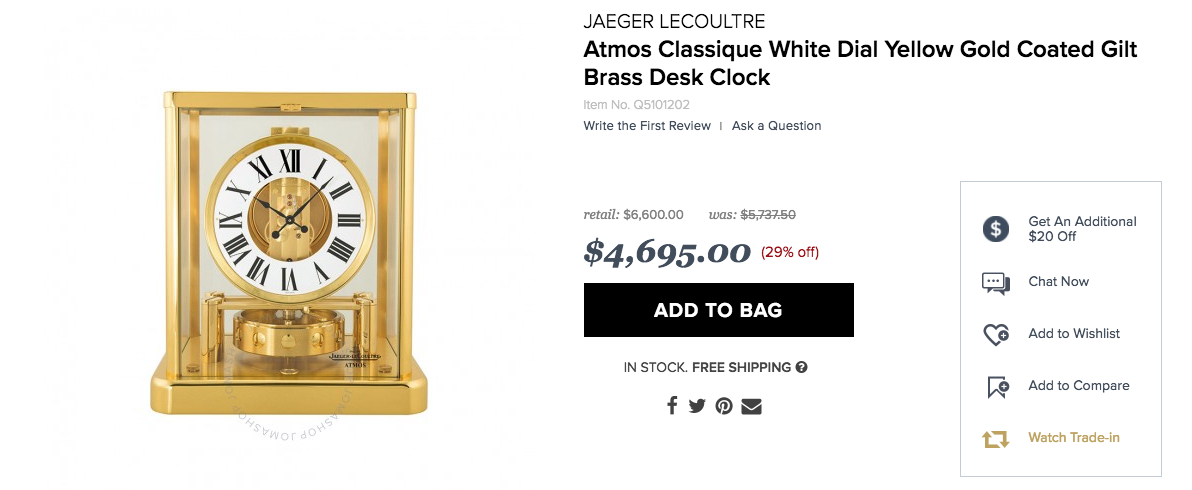
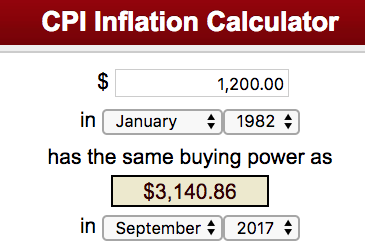
Posted By: Paul - Wed Nov 08, 2017 -
Comments (4)
Category: Excess, Overkill, Hyperbole and Too Much Is Not Enough, Nature, Technology, 1980s
Paperbacks from Hell
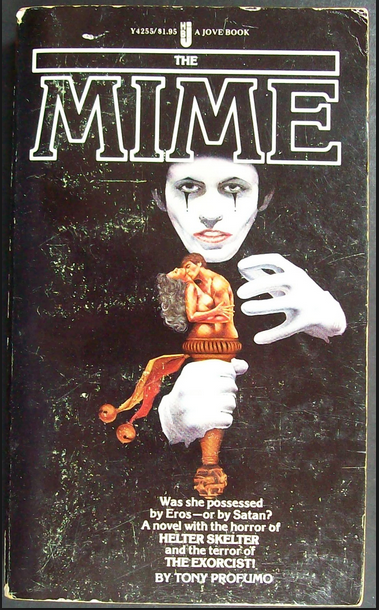
For Halloween or Xmas, what could be a better gift? A brilliant art and history book about the crazy-ass horror novel covers of yore?
Read a review here.
Posted By: Paul - Tue Oct 24, 2017 -
Comments (1)
Category: Horror, Ineptness, Crudity, Talentlessness, Kitsch, and Bad Art, Books, 1960s, 1970s, 1980s, 1990s
Michael Fish Moment
With Hurricane Ophelia headed in the direction of the U.K., it seems like an appropriate moment to remember the Great Storm of 1987. In particular, Oct 15, 1987, when TV weatherman Michael Fish opened his forecast with the remark, "Earlier on today, apparently, a woman rang the BBC and said she heard there was a hurricane on the way; well, if you're watching, don't worry, there isn't." A few hours later, the worst storm in 300 years hit Britain, killing 18 people. Though, in Fish's defense, it technically wasn't a hurricane.In the UK, whenever anyone makes a really bad prediction, it's still known as a "Michael Fish moment."
More info: wikipedia
Posted By: Alex - Sun Oct 15, 2017 -
Comments (2)
Category: Predictions, 1980s, Weather
Pass the Dutchie
From 1980s Childhood by Michael A. Johnson:I didn't know that. I had always assumed it was a song about cannabis. Though it's a bit odd to imagine a group of people passing a cooking pot around.

A dutchie
Image source: Jamaican patwah
Posted By: Alex - Wed Oct 11, 2017 -
Comments (8)
Category: Music, 1980s
Unauthorized Dwellings 3
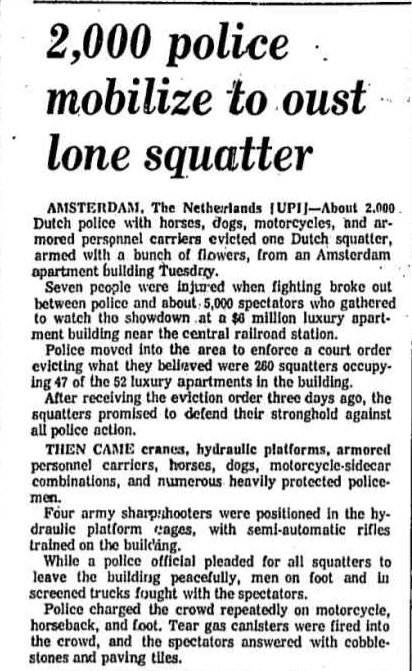

Posted By: Paul - Wed Oct 04, 2017 -
Comments (1)
Category: Antisocial Activities, Crowds, Groups, Mobs and Other Mass Movements, Police and Other Law Enforcement, Unauthorized Dwellings, 1980s

| Who We Are |
|---|
| Alex Boese Alex is the creator and curator of the Museum of Hoaxes. He's also the author of various weird, non-fiction, science-themed books such as Elephants on Acid and Psychedelic Apes. Paul Di Filippo Paul has been paid to put weird ideas into fictional form for over thirty years, in his career as a noted science fiction writer. He has recently begun blogging on many curious topics with three fellow writers at The Inferior 4+1. Contact Us |




